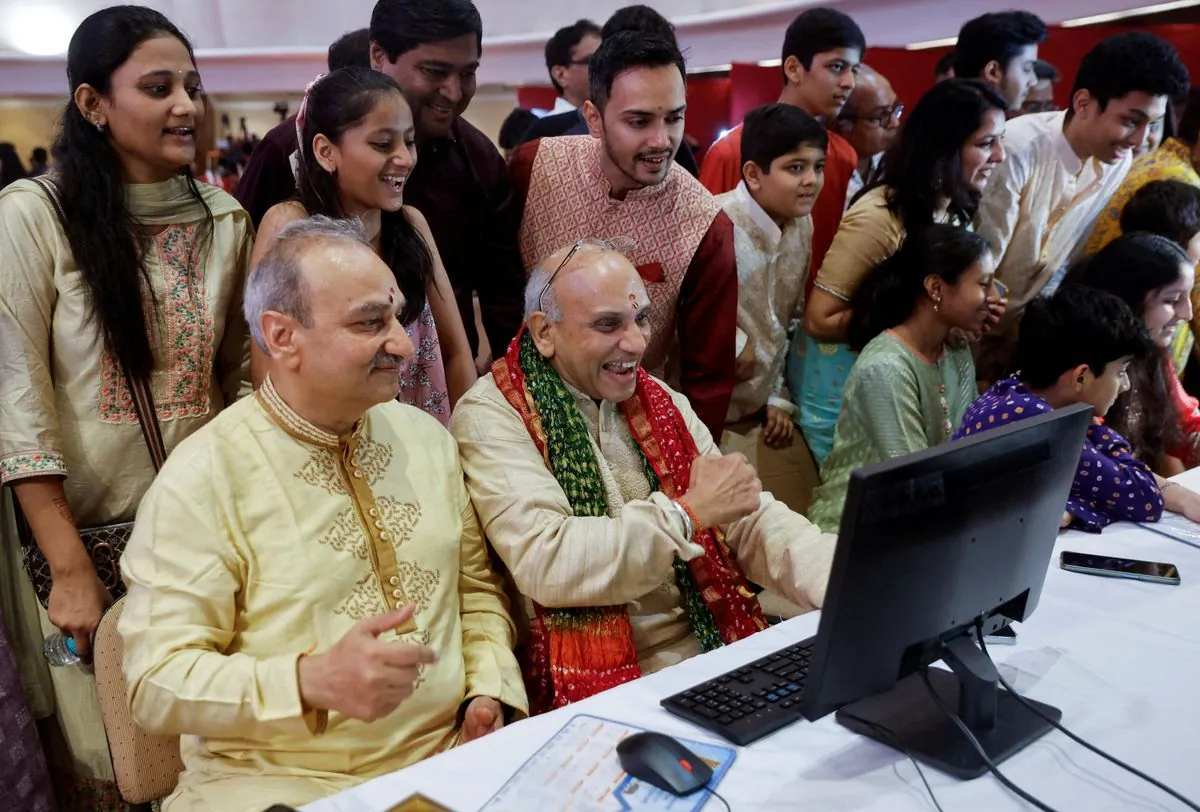As of August 28, 2023, Indian equities were positioned to commence trading with minimal changes, hovering close to their peak levels. The GIFT Nifty, a crucial indicator for the NSE Nifty 50, suggested a flat opening around the previous close of 25,017.75 points.
The Nifty 50, India's benchmark stock index, had experienced a remarkable nine-day ascent, gaining approximately 3.6%. This marked its longest consecutive daily increase in 16 months, bringing it within five points of its all-time high. The surge was attributed to abundant market liquidity.
Foreign Institutional Investors (FIIs) maintained their net buying position for the fourth consecutive session, injecting 15.04 billion rupees ($179.2 million) into Indian equities. Concurrently, Domestic Institutional Investors (DIIs) had been net purchasers for 15 straight sessions until the previous day.
Market analysts anticipated continued profit-taking in overvalued segments, noting increased caution as indices approached record levels. This cautious sentiment was further amplified by the impending release of domestic growth data and U.S. inflation figures later in the week.
Asian markets opened lower, with the MSCI Asia ex-Japan index declining by 0.4%. In contrast, Wall Street concluded marginally higher, as investors awaited Nvidia's quarterly report and upcoming U.S. economic data.
Several stocks were highlighted for potential market impact:
- ICICI Prudential Life received a tax demand of 4.29 billion rupees.
- PNC Infratech emerged as the lowest bidder for a National Highways Authority of India (NHAI) project valued at 3.8 billion rupees.
- Zydus Lifesciences secured U.S. regulatory approval for a Parkinson's disease treatment drug.
The Indian stock market's performance is closely tied to various economic factors, including GDP growth rates, inflation, and monetary policies set by the Reserve Bank of India (RBI). As the country's fiscal year progresses, investors will keenly observe these indicators for potential market impacts.
The Securities and Exchange Board of India (SEBI), as the market regulator, continues to play a crucial role in maintaining market integrity and investor protection. As Indian equities approach historic highs, the interplay between domestic and global economic factors will be pivotal in shaping market trajectories in the coming months.
